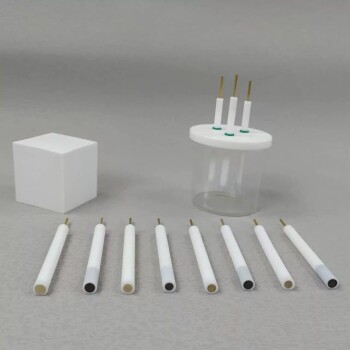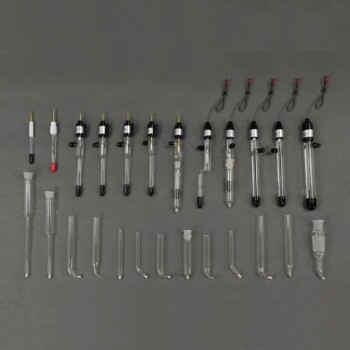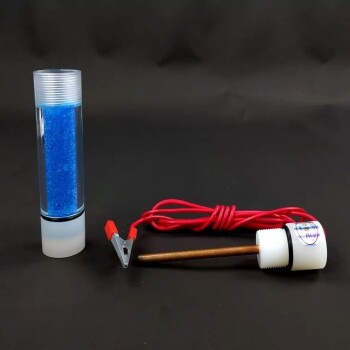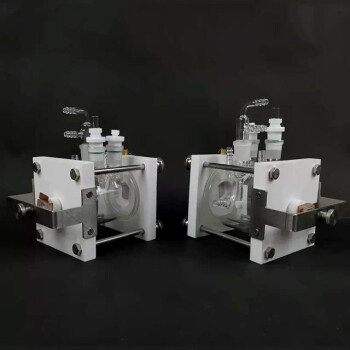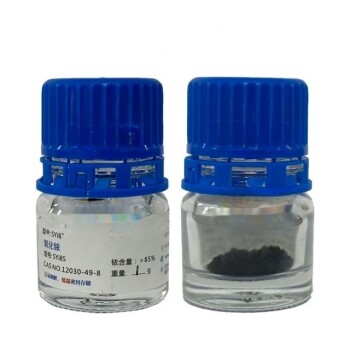There is no fixed lifespan for a platinum sheet electrode. Its longevity is not measured in years but is a direct function of its use, care, and the experimental conditions it endures. With meticulous maintenance, a platinum electrode can serve reliably for many years, while improper handling or a single harsh experiment can permanently damage it. Its durability is rooted in platinum's chemical inertness, but its primary points of failure are physical damage and surface contamination.
The service life of a platinum electrode is determined by its handling and maintenance protocols, not a predetermined expiration date. Its longevity is directly proportional to the care it receives, making proper storage, cleaning, and gentle handling the most critical factors.
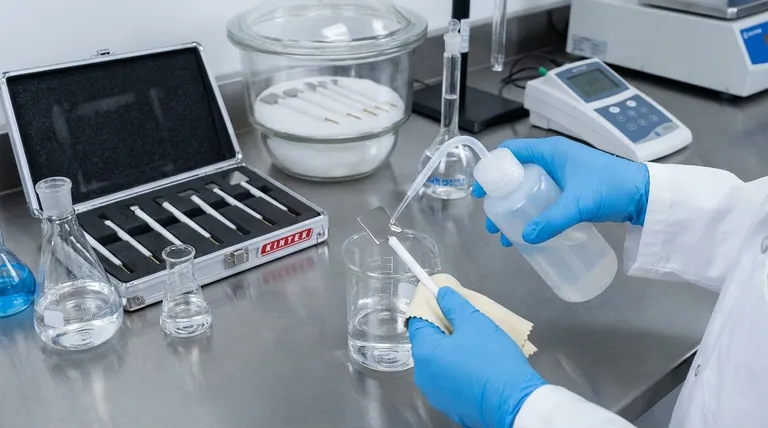
Why Platinum is Built for Longevity
To understand how to extend the life of your electrode, it's essential to first appreciate the inherent properties that make it so robust.
Inherent Chemical Stability
Platinum is exceptionally resistant to chemical attack. It remains stable in strong acids, strong alkalis, and high-temperature environments, making it highly resistant to corrosive media like hydrochloric, sulfuric, and nitric acid.
High Purity and Performance
A high-quality platinum sheet electrode has a purity of up to 99.99%. This high purity is not just for performance; it contributes to its stability and ensures the accuracy and reliability of your experimental data over time.
Excellent Catalytic Properties
Platinum exhibits superior catalytic performance for many electrochemical reactions and can operate over a wide potential range. This makes it an ideal and versatile material for repeated use in diverse experimental setups.
Maximizing Service Life: A Maintenance Protocol
The longevity of your electrode is an active process, not a passive guarantee. Adhering to a strict protocol is the most effective way to protect your investment.
Meticulous Pre-Use Inspection
Before every experiment, visually inspect the electrode surface. Ensure it is smooth, reflective, and free of any visible contamination or residue. If necessary, clean and re-polish it before use.
Immediate Post-Experiment Cleaning
As soon as an experiment concludes, rinse the electrode thoroughly with deionized water. This crucial step prevents residual electrolyte from drying on the surface, which can cause contamination and corrosion.
Proper Drying and Storage
After rinsing, allow the electrode to dry completely. Store it in its dedicated container, preferably the original box, to protect the delicate connection point. Always store it with the platinum sheet facing upwards to prevent contact scratches.
Common Pitfalls That Drastically Reduce Lifespan
Even a material as robust as platinum has vulnerabilities. Being aware of these failure modes is critical to avoiding them.
The Threat of Physical Damage
The platinum sheet is soft and malleable. Scratches, dents, or deformation from careless handling are often irreversible and can create active sites that alter electrochemical behavior and accelerate degradation.
The Impact of Surface Contamination
Contact with organic substances or other contaminants can foul the electrode surface. This contamination can be difficult to remove and will compromise the accuracy of your results and the electrode's performance.
Cautious Use in Reducing Environments
While highly stable, you should exercise caution when using a platinum electrode in strongly reducing environments. Under certain conditions, the platinum itself can be reduced, altering the surface and affecting its integrity.
The High Cost of Neglect
Platinum is an expensive precious metal. The high cost of replacement is a powerful incentive to treat the electrode with care and follow proper maintenance procedures to avoid unnecessary waste.
A Practical Checklist for Electrode Longevity
Use this checklist to ingrain best practices into your workflow.
- If you are preparing for an experiment: Always inspect the platinum surface for smoothness and cleanliness before you begin.
- If you are actively using the electrode: Handle it with extreme care, as the soft platinum is easily scratched or deformed.
- If you have just finished an experiment: Immediately rinse the electrode with deionized water to prevent residue from drying on the surface.
- If you are storing the electrode: Ensure it is completely dry and placed in its dedicated box with the platinum sheet facing up.
Ultimately, the lifespan of your platinum electrode is a direct reflection of your own laboratory discipline.
Summary Table:
| Key Factor | Impact on Lifespan |
|---|---|
| Proper Handling | Prevents irreversible physical damage like scratches and dents. |
| Immediate Cleaning | Avoids surface contamination and corrosion from dried electrolytes. |
| Correct Storage | Protects the delicate platinum sheet and connection point. |
| Pre-Use Inspection | Ensures a clean, smooth surface for accurate results. |
Protect your investment and ensure accurate, long-lasting results. The lifespan of your platinum sheet electrode is directly tied to its care. KINTEK specializes in high-purity lab equipment and consumables, providing the reliable tools and expert support your laboratory needs. For guidance on electrode maintenance or to explore our range of durable laboratory solutions, contact our experts today!
Visual Guide

Related Products
- Platinum Sheet Electrode for Laboratory and Industrial Applications
- Rotating Platinum Disk Electrode for Electrochemical Applications
- Platinum Auxiliary Electrode for Laboratory Use
- Gold Electrochemical Sheet Electrode Gold Electrode
- Gold Disc Electrode
People Also Ask
- What are the specifications of the Platinum-Titanium Functional Electrode? Maximize Electrochemical Performance
- What is the proper post-treatment procedure for a platinum sheet electrode? Ensure Long-Term Accuracy & Protect Your Investment
- What precautions should be taken when using a platinum sheet electrode? Ensure Accurate & Reproducible Electrochemical Data
- How should a platinum sheet electrode be operated during an experiment? Ensure Accurate and Reproducible Results
- What is the most critical guideline for immersing a platinum sheet electrode in an electrolyte? Ensure Accurate Electrochemical Measurements





